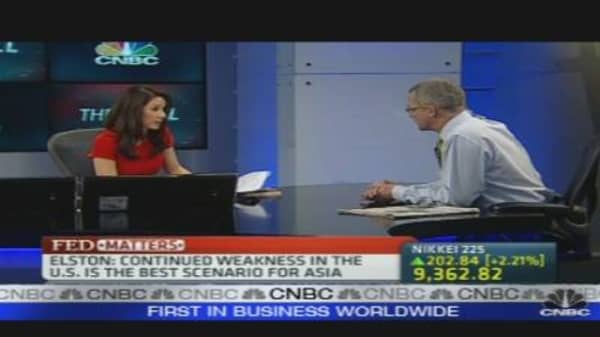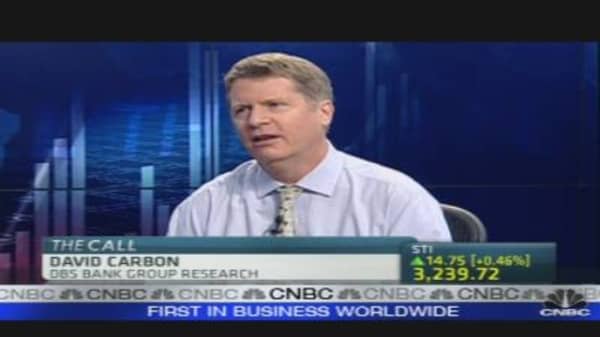The Federal Reserve'semergency measures to spend $600 billionin a bond-buying spree is confirmation the U.S. economy is very weak and that bodes well for Asian nations, strategists told CNBC on Thursday. However some remained worried that the extra liquidity could add to rising inflationary pressures in the region.
"What would happen on the political front means certain measures will not be implemented over the next few months and couple of years, and this means that the economic outlook is still for a very weak picture in the U.S.," said Peter Elston, Chief Strategist at Aberdeen Asset Management Asia.
"That's good for Asia. That keeps monetary policy in the west very weak, as long as we don't get an implosion in the U.S. economy ala 2008, which would obviously impact Asia, then that's good for Asia," he said.
Asian markets welcomed the Fed's moveon Thursday, rising to near two-year highs with the Nikkei 225 and Hang Seng both sharply higher.
"You have Asian markets which are still relatively fairly valued or cheap if you are looking at trend earnings. The outlook is pretty good at the moment," Elston continued.
"Longer term, we're certainly looking at more inflows into Asia, partly from the Fed and partly from longer-term 'structural reasons' as well. Asia is where the growth is taking place. This is where people will want to be investing to take advantage of that growth," said David Carbon, MD, Economics & Currencies DBS Bank Group Research.
On Wednesday, Goldman Sachs raised its 12-month target for the Hang Seng to 29,000, saying the city had the most to gain from China's growing economy and quantitative easing programs in the United States. That helped boost the Hang Seng to a fresh 28-month high.
Bubble Trouble?
But Hong Kong Monetary Authority chairman Norman Chan shot off an early warning on Thursday, saying the Fed's move could trigger short-term volatility in the foreign exchange and financial markets. He added the stimulus plan raises the risk of a property bubble.
"There is no question in our view that inflation is now above average. It is rising. We see this as continuing. Inflation is not going to be going down, it's going to be going up," Carbon said, highlighting a vicious cycle where raising interest rates to absorb the ample liquidity would only encourage more inflows.
"Capital controls are plainly going to be part the solution here," he said.
Asian Currencies Set to Appreciate
Currency appreciation, faster GDP growth and higher inflation would all be part of the solution to absorb the inflows, Carbon continued.
"Every single currency in Asia is going to be headed north — another 4-5 percent we reckon, by the middle of next year," he noted.
The Korean won is expected to appreciate by the biggest amount, up some 10 percent towards mid-to-late 2011, he said.




